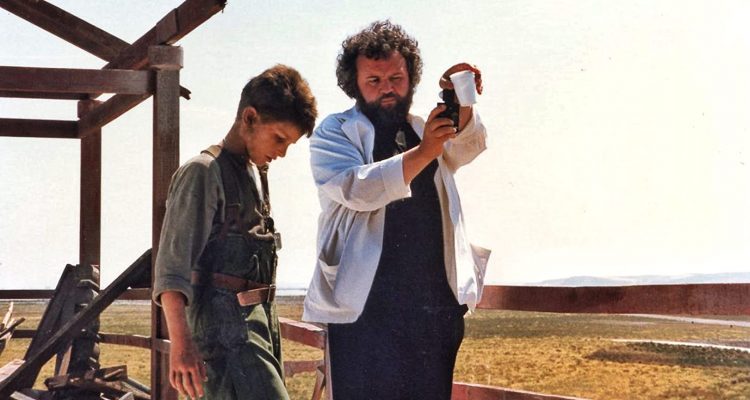When someone who works in the industry dies, we usually focus on the actors, writers, and directors — after all, so does the Academy’s In Memoriam segment. One role we generally don’t focus on so much are the cinematographers, and we just lost one of the greats. Allen Daviau, the 5-time Academy Award nominee cinematographer perhaps best known for his work with Steven Spielberg in “E.T. the Extra-Terrestrial,” “Empire of the Sun,” and “The Color Purple,” passed away earlier this week at the age of 77 from complications with the coronavirus.
Daviau worked for over four decades, receiving his first Oscar nomination for his work in “E.T.” which was his first collaboration with Steven Spielberg. The director paid tribute to Daviau via Twitter, where he said: “In 1968, Allen and I started our careers side by side with the short film ‘AMBLIN’. Allen was a wonderful artist, but his warmth and humanity were as powerful as his lens,” Spielberg wrote. “He was a singular talent and a beautiful human being.”
There is no doubt that without Daviau’s camera, “E.T.” wouldn’t have become the modern classic it did. From the magic of seeing the bikes fly out into the night sky, to the heartbreak of seeing E.T. say a final goodbye to Elliot, Daviau was able to capture the emotion in Speilberg’s story, and present to the audience a friendship for the ages.
Kees van Oostrum, president of the American Society of Cinematographers, also wrote a statement about Daviau’s passing. “Allen was active in our society in many ways like chairing our membership committee for several years,” Van Oostrum said. “Also, his commitment to teaching our craft and being very accessible for young cinematographers will forever be engraved in our memories. He will be remembered fondly for his sense of humor, his taste for the best of foods and his laugh that unmistakably marked his presence from far away.”
Daviau also shot Spielberg’s “Empire of the Sun,” doubling down on the sentiment and emotions, resulting in breathtaking scenes like the moment a young internment camp prisoner (played by Christian Bale) salutes Japanese fighter pilots during WWII. The politics of the movie aside, Daviau manages to make such a small and simple scene into the highlight of the entire film.
Even if it wasn’t really well received, or remains as iconic, one of Daviau’s final films was the 2004 “Van Helsing” which did give us Hugh Jackman as a werewolf fighting Dracula. The result was just about as good as you’d expect from reading that sentence (very).

